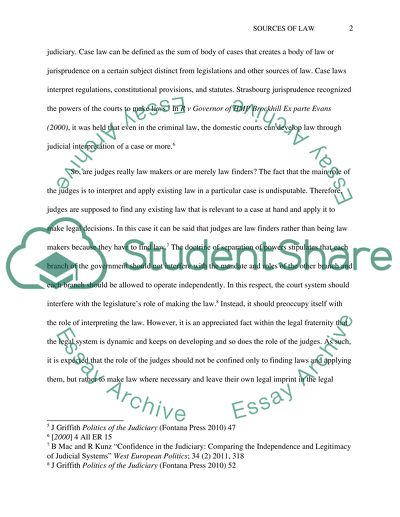Cite this document
(“Do Judges Make the Law or Find it Essay Example | Topics and Well Written Essays - 2000 words”, n.d.)
Retrieved from https://studentshare.org/law/1455061-do-judges-make-the-law-or-find-it-
Retrieved from https://studentshare.org/law/1455061-do-judges-make-the-law-or-find-it-
(Do Judges Make the Law or Find It Essay Example | Topics and Well Written Essays - 2000 Words)
https://studentshare.org/law/1455061-do-judges-make-the-law-or-find-it-.
https://studentshare.org/law/1455061-do-judges-make-the-law-or-find-it-.
“Do Judges Make the Law or Find It Essay Example | Topics and Well Written Essays - 2000 Words”, n.d. https://studentshare.org/law/1455061-do-judges-make-the-law-or-find-it-.


